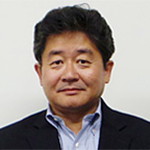 Yasusuke Tsukagoshi
Yasusuke Tsukagoshi
Special Representative, Japan, World Bank Group
Mr. Yasusuke Tsukagoshi became Special Representative, Japan on August 1, 2013. The Special Representative leads the institutional relationship with the Japanese Government, partners, and stakeholders; oversees the World Bank Tokyo Office; and has responsibility for coordinating and managing outreach and communications programs in Japan. Mr. Tsukagoshi, a Japanese national, has had a long career in Japan’s Ministry of Finance (MOF). Most recently, he served as Director General of Tokyo Customs following senior positions in the Ministry’s Customs and Tariff Bureau. Prior to the Customs’ positions, he had 17 years of experience in international finance and development. From 2008 to 2011 Mr. Tsukagoshi was Executive Director at the Inter-American Development Bank, representing Croatia, Japan, Korea, Portugal, Slovenia, and the United Kingdom, and from 1988 to 1991 he served as Executive Director at the African Development Bank, representing Argentina, Austria, Brazil, Japan, and Saudi Arabia.
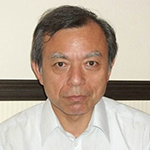 Daisuke Higaki
Daisuke Higaki
Professor, Department of Agricultural and Environmental Engineering, Hirosaki University / Former President, Japan Landslide Society
Dr. Daisuke Higaki is an expert of geography, natural disaster and disaster prevention science, conducting research with a focus on disaster reduction around mountainous areas including landslides He also leads to promote poverty and environmental deterioration reduction through disaster risk management. Since joining Ministry of Land, Infrastructure, Transport and Tourism, Japan (former Ministry of Construction) in 1983, Dr. Higaki served at Gifu Prefectural Government, College of Land, Infrastructure, Transport and Tourism (former College of Construction), Public Works Research Institute, Japan International Cooperation Agency (JICA)’s Disaster Prevention Technical Center in Nepal, and Kanagawa Prefectural Government. He became Associate Professor at the Faculty of Agricultural and Life Science, Hirosaki University in 1998, and appointment as professor in 2003. Dr. Higaki holds a Doctor of Science from the Graduate School, Tohoku University. Some of his recent research papers include: “Erosion and sedimentation caused by glacial outburst floods in the Nepal and Bhutan Himlayas, Global Environmental Research , vol.16 (1), 2012.03”, and “Distribution and characteristics of landslides induced by the Iwate-Miyagi Nairiku Earthquake in, Landslides, vol.6 (4), 2009.10”.
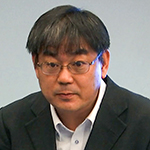 Mikihiro Mori
Mikihiro Mori
Chief Specialist, Geosphere Engineering & Disaster Management Office, Nippon Koei Co., Ltd.
Mr. Mikihiro Mori specializes in engineering geology and road disaster management. He serves as Chief Specialist at the Geosphere Engineering & Disaster Management Office, Nippon Koei, and provides technical solutions to the road disasters. Mr. Mori’s extensive experience includes road and disaster management and technical transfer projects in Indonesia, Cambodia, Armenia, Nepal, Philippines, Jordan, Brazil, Honduras, and Nicaragua. Prior to joining current position, he conducted Japan International Cooperation Agency (JICA)’s projects in the above countries since 1994. During 2000-2003, he was temporarily transferred to Institute of Road Management Technology in the Road Management Technology Center, Japan, as Chief Researcher, to develop road disaster management technique. From 2013 to 2014, he worked as a Project Manager of Slope Protection for Sindhuri Road, Nepal. He also served as JICA Expert at the technical assistance project on Nepal’s Sindhuri Road operation and maintenance from 2012 to 2015. Mr. Mori holds BSc P.E.Jp in Engineering Geology, Road Diaster Management and Comprehensive Technical Management. He also holds the International Professional Engineer Agreement (IPEA) IntPE(JP),and APEC Engineer in Civil sector.
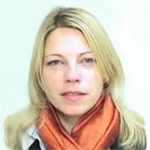 Svetlana Vukanović
Svetlana Vukanović
Transport Specialist, Transport and ICT Global Practice, World Bank
Dr. Svetlana Vukanovic is Transport Specialist, Transport and ICT Global Practice, World Bank Serbia Country Office. She is working on a portfolio in Serbia, and leading Transport Rehabilitation Projects. She has also engaged with cross country supports between Azerbaijan, Montenegro, Belorussia, and Russia and cross practice work with Energy, Governance, and DRM teams. She started her career in 1998 as Information System Engineer, followed by Business Associate at the PPT Serbia, and Research Associate at Munich University of Technology. From 2002 to 2006, she worked as Consultant at Transver GmbH, Germany. From 2006 till her enrolment to the World Bank in 2008, she served as Technical Department Manager at Siemens. Dr. Vukanovic holds graduate and Postgraduate degrees in Information Systems from University of Belgrade, and Ph.D. in Traffic Engineering from Technical University of Munich.
 Mikio Ishiwatari
Mikio Ishiwatari
Senior Advisor, Japan International Cooperation Agency
Dr. Mikio Ishiwatari is Senior Advisor in Disaster Management and Water Resources Management at Japan International Cooperation Agency (JICA), and has been engaged in the projects of disaster risk management (DRM) and water. He led formulation of the Japanese assistance policies of climate change adaptation and community-based disaster management. He worked at the World Bank as Senior DRM Specialist and Senior Water Specialist from 2011 until 2015, and produced the “Learning from Megadisaster: Lessons from the Great East Japan Earthquake”. He worked at various positions of DRM at the Ministry of Land, Infrastructure, and Transport, Japan for 17 years. He formulated and supervised national projects of flood risk management and highways in Iwami District as Director of Hamada River and Road Office, and was responsible for research and technology development as Senior Deputy Director for River Technology and Information. He worked as Urban Development Specialist at the Asian Development Bank. Dr. Ishiwatari holds a MSc in Urban Engineering and Ph.D. in International Studies from the University of Tokyo.
 Yuka Makino
Yuka Makino
Senior Natural Resources Management Specialist, Social, Urban, Rural and Resilience Global Practice, World Bank
Dr. Yuka Makino brings over 20 years operational experience in managing and developing programs in natural resources management, land management, disaster risk management, and climate change adaptation. She has extensive country experience in East Asia, South Asia, and Africa, and has built relationships with client governments, Japanese agencies and other stakeholders. From 2014-2015, she worked for developing new programs and knowledge projects under the Japan-World Bank Program for Mainstreaming Disaster Risk Management in Developing Countries, and also led the overall management of Disaster Risk Management Hub, Tokyo. Prior to joining the World Bank in 2001, she was a UNDP Program Officer in Cambodia, and a JICA expert on Community based disaster management in Nepal. Dr. Makino has a graduate degree from International Christian University in Tokyo, and a Masters and Ph.D. in terrestrial ecosystem management from the University of Michigan, Ann Arbor, U.S.A.
 James Newman
James Newman
Disaster Risk Management Specialist, Disaster Risk Management Hub, Tokyo, Global Facility for Disaster Reduction and Recovery, World Bank
Since joining the World Bank in 2013, Mr. James Newman has led Global Facility for Disaster Reduction and Recovery (GFDRR)’s overall work planning, and served as focal point for urban resilience and regional portfolios in South Asia and East Asia Pacific. He contributed to the development of the World Bank’s CityStrength Diagnostic and Medellin Collaboration on Urban Resilience. He has supported World Bank projects and technical assistance, including post-disaster assessments, in India, Nepal, South Africa, and Vietnam. Prior to GFDRR, he worked for the City of Baltimore, contributing to the city’s 10-Year Financial Plan, risk management, CitiStat performance management, and open data, and served as acting deputy procurement agent. He has also covered Latin American and Caribbean finance and insurance for a Chilean market intelligence firm. Studying economics and public policy, Mr. Newman has a Master’s from Georgetown and Universidad Alberto Hurtado in Santiago, Chile and undergraduate degree from Washington University in St. Louis. As an adjunct professor, he has taught urban management, public policy, and statistics at University of Baltimore’s Master’s in Public Administration (MPA) program.
(Listed in the order of presentation)
❖ Overview
❖ Our Activities
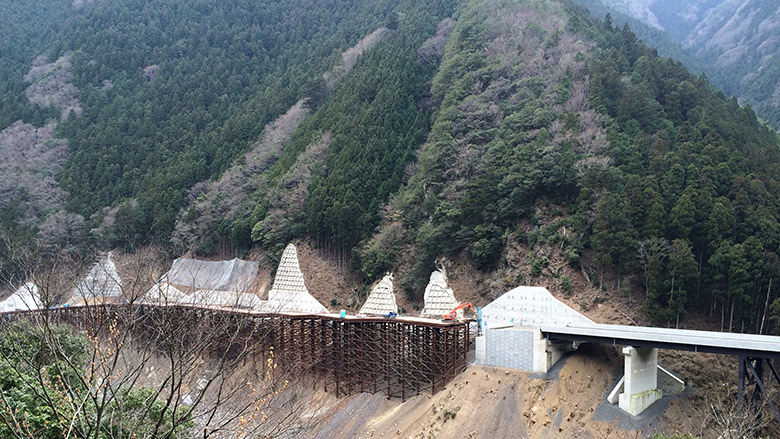
 Yasusuke Tsukagoshi
Yasusuke Tsukagoshi Daisuke Higaki
Daisuke Higaki Mikihiro Mori
Mikihiro Mori Svetlana Vukanović
Svetlana Vukanović Mikio Ishiwatari
Mikio Ishiwatari Yuka Makino
Yuka Makino James Newman
James Newman